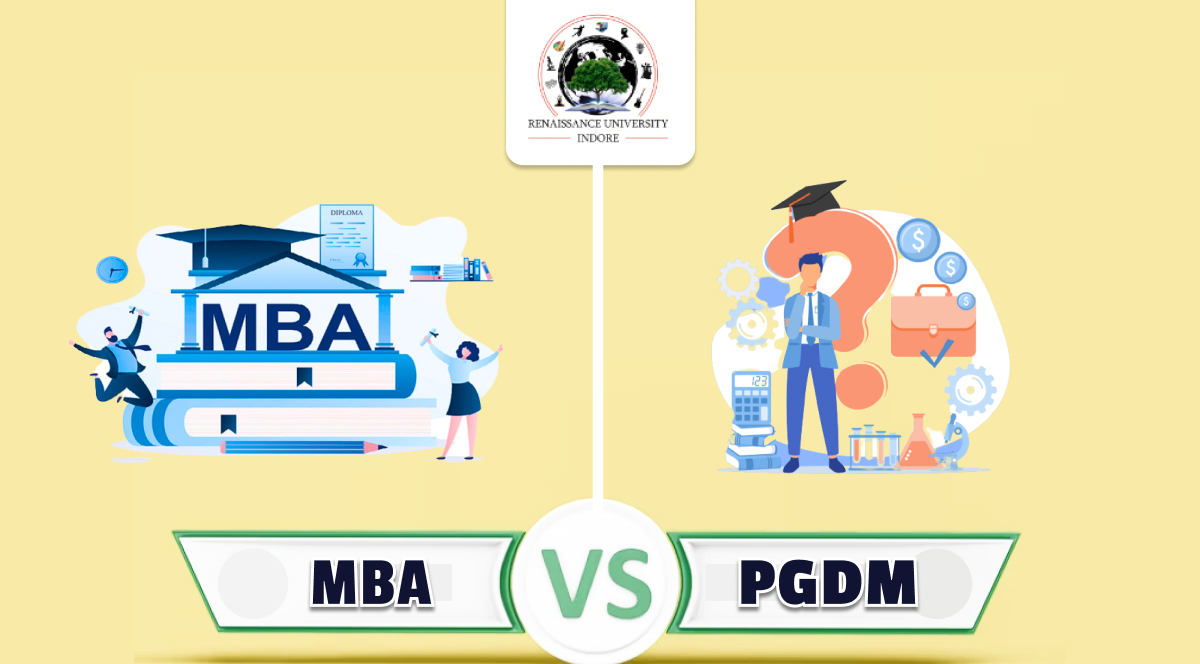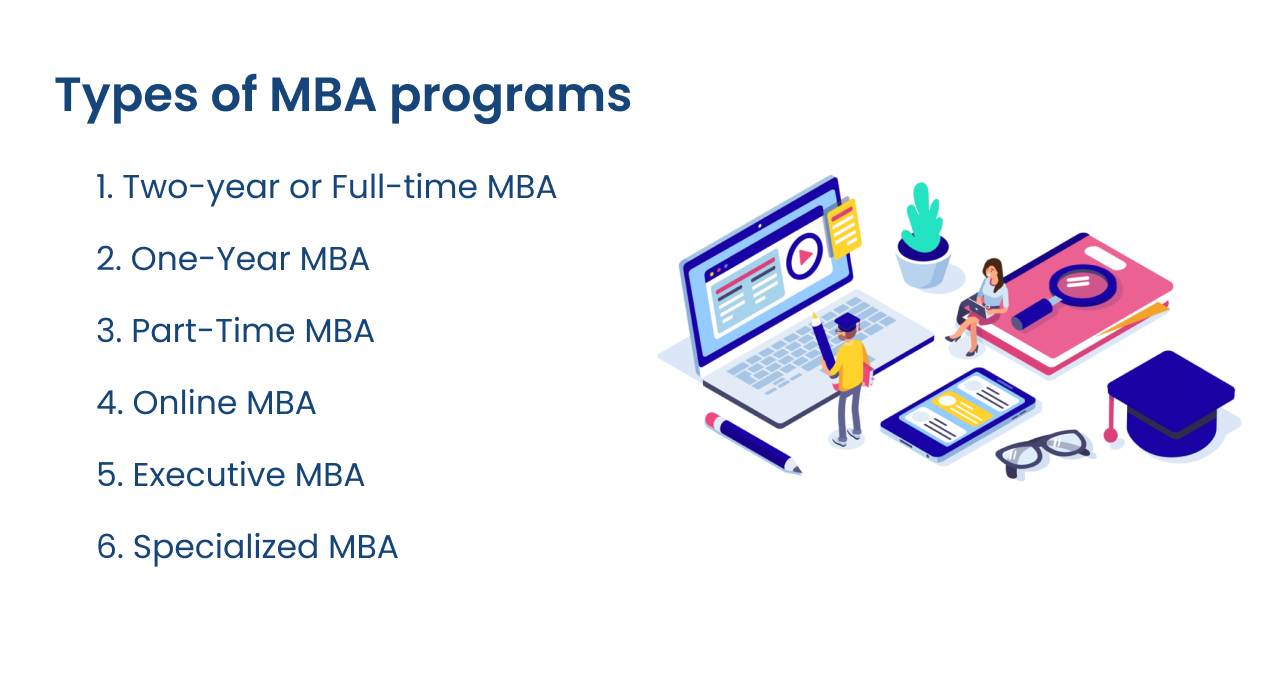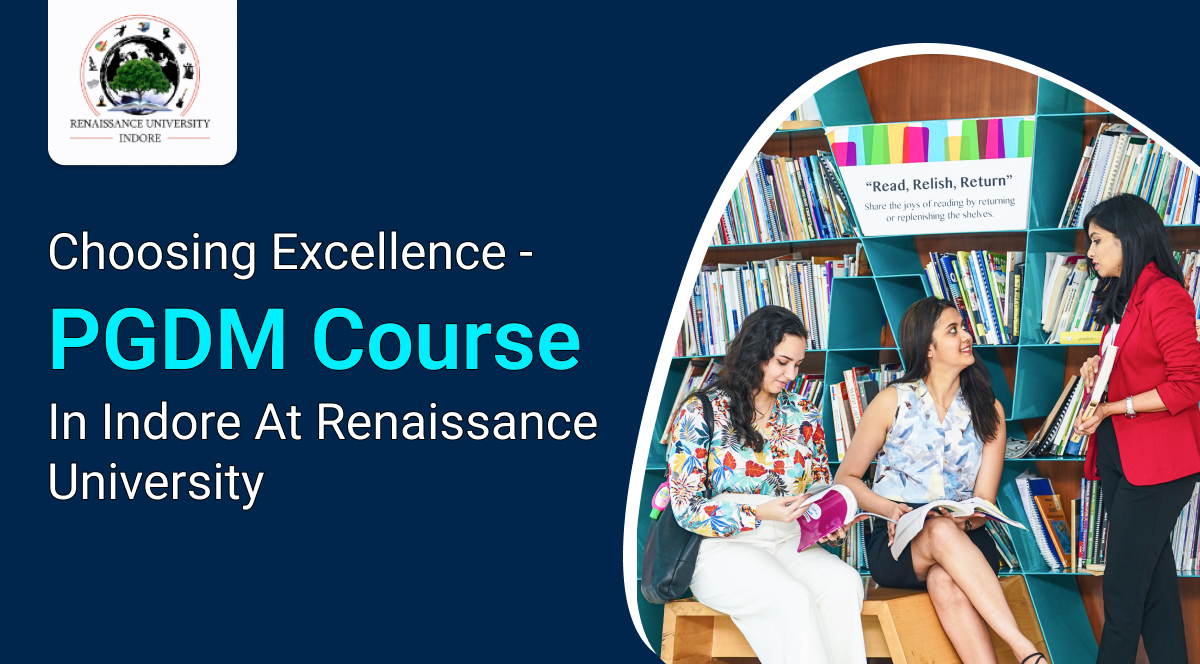Biotechnology, the application of scientific knowledge to develop innovative solutions, has emerged as a transformative field in our modern world. At the heart of this dynamic discipline lies the B.Sc (Biotechnology) program, which plays a crucial role in bridging the gap between scientific theory and practical innovation. Through this blog, we delve into the captivating realm of B.Sc (Biotechnology) and explore how it equips aspiring scientists with the knowledge and skills needed to revolutionize various industries.
In the following sections, we will navigate the diverse landscape of biotechnology, examine the comprehensive curriculum of the B.Sc program, and unravel the ways in which it fosters a strong foundation in science and innovation. Additionally, we will highlight the numerous career opportunities that await graduates, empowering them to contribute to groundbreaking discoveries and advancements.
Join us on this enlightening journey as we uncover the transformative power of B.Sc (Biotechnology) in bridging the gap between scientific inquiry and pioneering innovation
Section 1: Understanding Biotechnology
Biotechnology, a field at the forefront of scientific advancement, encompasses the application of biological processes, organisms, or systems to develop innovative solutions and products that benefit society. This multidisciplinary domain integrates knowledge from biology, chemistry, genetics, and engineering to address pressing challenges in various sectors.
Biotechnology has made remarkable contributions across diverse industries, including healthcare, agriculture, environmental conservation, and industrial processes. In healthcare, it has revolutionized the development of new drugs, diagnostics, and therapies, offering hope for previously incurable diseases. In agriculture, biotechnology has enhanced crop yields, improved nutritional content, and enabled the cultivation of genetically modified organisms with desirable traits. Moreover, it has paved the way for eco-friendly solutions, such as biofuels and bioremediation, to address environmental concerns. In industrial applications, biotechnology has transformed manufacturing processes, leading to the production of sustainable materials and bio-based chemicals.
Central to the concept of biotechnology is the understanding of cellular and molecular processes. By unraveling the intricate mechanisms governing living organisms, scientists can manipulate and harness these processes to achieve desired outcomes. Genetic engineering, for instance, enables the modification of an organism’s genetic makeup to enhance desired traits or produce valuable substances. Bioprocessing techniques involve the use of microorganisms or enzymes to synthesize complex compounds or carry out specific biochemical reactions.
The field of biotechnology continually pushes the boundaries of scientific knowledge and innovation. Through advancements in genomics, proteomics, and bioinformatics, researchers can unravel the complexities of biological systems, enabling a deeper understanding and more targeted interventions. Additionally, emerging technologies such as gene editing tools like CRISPR-Cas9 have opened up new avenues for precise genome manipulation, revolutionizing the possibilities in biotechnology research.
In summary, biotechnology serves as a transformative force, harnessing the power of living systems to address societal challenges and drive innovation. The next section will delve into the B.Sc (Biotechnology) program, which lays the foundation for aspiring scientists to navigate this dynamic field and contribute to its further advancements.
Section 2: B.Sc (Biotechnology) Program Overview
The B.Sc (Biotechnology) program offers a comprehensive curriculum designed to equip students with the knowledge, skills, and practical experience necessary to thrive in the field of biotechnology. This undergraduate program typically spans three to four years, depending on the educational institution and country.
The program combines a strong foundation in biological sciences with specialized courses that delve into the intricacies of biotechnology. Students are introduced to core subjects such as molecular biology, genetics, biochemistry, microbiology, and cell biology, providing them with a fundamental understanding of the building blocks of life and the mechanisms that govern biological processes.
In addition to the core subjects, B.Sc (Biotechnology) programs often offer specialized courses tailored to the intricacies of biotechnology. These courses cover a wide range of topics, including genetic engineering, recombinant DNA technology, bioprocess engineering, bioinformatics, and bioethics. Students also gain hands-on experience through laboratory work, where they learn essential techniques such as DNA manipulation, protein purification, cell culture, and analysis of biological data using computational tools.
To foster a holistic understanding of biotechnology, B.Sc (Biotechnology) programs often integrate interdisciplinary subjects. Students may take courses in chemistry, bioinformatics, computer science, and engineering to develop a well-rounded skill set and be prepared to tackle the complex challenges of the field.
Beyond classroom learning, B.Sc (Biotechnology) programs provide students with practical training opportunities. These may include research projects, internships at biotechnology companies or research institutions, and collaborations with faculty members on cutting-edge research. Such experiences allow students to apply their theoretical knowledge, gain practical skills, and develop a deeper understanding of the real-world applications of biotechnology.
Furthermore, many B.Sc (Biotechnology) programs encourage students to participate in extracurricular activities, such as student organizations or conferences, where they can network with professionals, attend workshops, and showcase their research findings. These opportunities foster a sense of community and provide avenues for professional development and exposure to the latest advancements in the field.
Upon completion of the B.Sc (Biotechnology) program, graduates possess a strong foundation in biological sciences and a specialized understanding of biotechnology. They are well-prepared for diverse career paths in research and development, pharmaceutical and biotech industries, agricultural and environmental sectors, healthcare, academia, and entrepreneurship.
In the following section, we will explore how the B.Sc (Biotechnology) program builds a strong foundation for students, empowering them to bridge the gap between scientific knowledge and innovative applications.
Section 3: Building a Strong Foundation
The B.Sc (Biotechnology) program plays a vital role in building a strong foundation for students, providing them with the necessary knowledge and skills to excel in the field of biotechnology. This section will delve into the key aspects of the program that contribute to this strong foundation.
- Fundamental Scientific Knowledge: B.Sc (Biotechnology) programs emphasize core subjects such as molecular biology, genetics, biochemistry, microbiology, and cell biology. These courses provide students with a comprehensive understanding of the fundamental principles governing living organisms. They learn about the structure and function of biomolecules, the mechanisms of gene expression and regulation, cellular processes, and the interactions within biological systems. This knowledge forms the backbone of biotechnology, enabling students to comprehend the complexities of living systems and devise innovative solutions.
- Laboratory Techniques and Practical Skills: Hands-on laboratory experience is a crucial component of B.Sc (Biotechnology) programs. Students gain proficiency in essential techniques such as DNA extraction, PCR (Polymerase Chain Reaction), gel electrophoresis, cloning, protein purification, and cell culture. They learn to handle sophisticated instruments and equipment used in biotechnology research, fostering technical competence and scientific rigor. By engaging in practical experiments, students develop critical thinking, problem-solving, and data analysis skills, preparing them for the challenges of real-world biotechnology applications.
- Research and Project Work: Many B.Sc (Biotechnology) programs provide opportunities for students to engage in research projects. Working closely with faculty members or research groups, students explore specific areas of biotechnology and contribute to ongoing scientific investigations. Through research projects, students learn to formulate research questions, design experiments, collect and analyze data, and draw meaningful conclusions. This exposure to research fosters a spirit of inquiry, cultivates creativity, and instills a passion for scientific exploration.
- Interdisciplinary Approach: B.Sc (Biotechnology) programs often integrate interdisciplinary subjects to provide a holistic understanding of the field. Students may study courses in chemistry, bioinformatics, computer science, and engineering, enabling them to explore the interface between biotechnology and other disciplines. This interdisciplinary approach equips students with a broader perspective, fostering innovation and encouraging the application of diverse knowledge domains to solve complex biotechnological challenges.
- Critical Thinking and Ethical Considerations: B.Sc (Biotechnology) programs emphasize critical thinking skills and ethical considerations. Students are encouraged to critically evaluate scientific literature, analyze experimental results, and make informed decisions. They develop an understanding of the ethical implications of biotechnological advancements, including issues related to genetic engineering, human subjects research, and environmental impact. This ethical awareness cultivates responsible and conscientious professionals who consider the social and moral implications of their work.
By building a strong foundation in scientific knowledge, laboratory skills, research experience, interdisciplinary thinking, and ethical considerations, B.Sc in Biotechnology programs empower students to bridge the gap between scientific theory and innovative applications. In the next section, we will explore how this integration of science and innovation takes place within the B.Sc (Biotechnology) program.
Section 4: Integration of Science and Innovation
The B.Sc (Biotechnology) program serves as a platform for integrating science and innovation, empowering students to apply their knowledge and skills to drive groundbreaking advancements in the field. This section explores how the program fosters a culture of innovation and enables students to bridge the gap between scientific inquiry and practical applications.
Cutting-Edge Research:
B.Sc (Biotechnology) programs often provide opportunities for students to engage in cutting-edge research projects. Working alongside faculty members or research groups, students contribute to ongoing investigations and explore novel areas of biotechnology. This hands-on research experience exposes students to the latest advancements, allowing them to apply scientific principles to real-world challenges. By actively participating in research, students gain a deeper understanding of the scientific process, develop critical thinking skills, and contribute to the advancement of knowledge in the field.
Emerging Technologies:
The B.Sc (Biotechnology) program acquaints students with emerging technologies that are revolutionizing the field. Students learn about breakthroughs such as gene editing techniques (e.g., CRISPR-Cas9), next-generation sequencing, synthetic biology, and nanotechnology. Understanding these technologies equips students with the tools to innovate and think creatively about potential applications and their implications. By staying abreast of the latest technological advancements, students can explore new avenues for scientific inquiry and develop innovative solutions to existing challenges.
Entrepreneurship and Industry Exposure:
B.Sc (Biotechnology) programs often foster an entrepreneurial mindset and provide opportunities for students to explore the business aspects of biotechnology. Entrepreneurship courses or modules help students develop skills in business planning, intellectual property rights, and commercialization strategies. Additionally, programs may facilitate industry collaborations, internships, or guest lectures by professionals working in biotech companies. Such exposure to the industry allows students to witness firsthand how scientific discoveries are translated into practical applications and encourages them to think innovatively about commercialization opportunities.
Problem-Based Learning and Innovation Challenges:
To foster a culture of innovation, B.Sc (Biotechnology) programs may incorporate problem-based learning approaches and innovation challenges. Students are presented with real-world problems or case studies and are encouraged to work collaboratively to propose innovative solutions. This approach not only enhances critical thinking and problem-solving skills but also nurtures a creative mindset and encourages students to think outside the box. Innovation challenges or competitions provide platforms for students to showcase their ideas, receive feedback, and refine their innovative thinking.
Collaboration and Networking:
B.Sc (Biotechnology) programs often emphasize collaboration and networking opportunities within the scientific community. Students may engage in group projects, seminars, or conferences, allowing them to interact with peers, faculty, and professionals in the field. These interactions provide a platform for knowledge sharing, idea exchange, and collaboration. By fostering a collaborative environment, the program encourages students to leverage diverse perspectives and expertise, enhancing their ability to generate innovative solutions.
By integrating science and innovation, B.Sc (Biotechnology) programs empower students to bridge the gap between theoretical knowledge and practical applications. Through cutting-edge research, exposure to emerging technologies, entrepreneurial initiatives, problem-based learning, and collaboration opportunities, students are equipped to become drivers of innovation in the biotechnology field. In the next section, we will explore the diverse career opportunities available to B.Sc (Biotechnology) graduates.
Section 5: Career Opportunities
A B.Sc (Biotechnology) degree opens up a wide array of exciting and diverse career opportunities for graduates. The program equips students with a strong foundation in biotechnology, scientific knowledge, practical skills, and innovative thinking, making them highly sought-after in various industries. In this section, we will explore some of the potential career paths for B.Sc (Biotechnology) graduates.
Research and Development (R&D):
Many graduates find rewarding careers in research and development, working in academic institutions, government laboratories, or private research organizations. They contribute to cutting-edge scientific investigations, designing experiments, conducting research, analyzing data, and discovering new insights. Graduates may focus on specific areas such as drug development, agricultural biotechnology, genetic engineering, or industrial processes. R&D roles offer opportunities to push the boundaries of scientific knowledge, contribute to breakthrough discoveries, and drive innovation.
Biotechnology Industry:
The biotechnology industry provides diverse career opportunities for B.Sc (Biotechnology) graduates. They may work in biotech companies involved in pharmaceuticals, biopharmaceuticals, medical devices, or agricultural biotechnology. Roles can range from research associates, laboratory technicians, quality control analysts, to product development scientists. Graduates may be involved in developing new therapies, optimizing production processes, conducting clinical trials, or ensuring product safety and quality. The biotechnology industry offers an environment of innovation and growth, with opportunities for career advancement and making a tangible impact on human health and the environment.
Healthcare and Medical Fields:
B.Sc (Biotechnology) graduates can pursue careers in healthcare and medical fields. They may work in diagnostic laboratories, medical research institutions, or healthcare companies. Roles can include medical laboratory technologists, genetic counselors, or research assistants. Graduates can contribute to diagnostic testing, genetic analysis, or clinical research, supporting advancements in personalized medicine, disease diagnosis, and treatment.
Agricultural and Environmental Sectors:
With the increasing focus on sustainable agriculture and environmental conservation, B.Sc (Biotechnology) graduates can find opportunities in these sectors. They can work in agricultural biotechnology companies, seed production firms, or government agencies involved in food safety and crop improvement. Graduates may contribute to developing genetically modified crops, enhancing crop yields, improving resistance to pests and diseases, or sustainable farming practices. In the environmental sector, graduates may work on bioremediation projects, developing biofuels, or exploring solutions for environmental conservation.
Regulatory Affairs and Compliance:
Graduates with a B.Sc (Biotechnology) degree can pursue careers in regulatory affairs and compliance. They ensure that biotechnological products and processes adhere to legal and ethical standards, safety regulations, and quality guidelines. Regulatory affairs professionals work closely with government agencies, industry bodies, and research organizations to navigate complex regulatory frameworks, obtain approvals, and ensure compliance with applicable laws.
Entrepreneurship and Start-ups:
Some B.Sc (Biotechnology) graduates choose to pursue entrepreneurial ventures or work with biotech start-ups. With their scientific knowledge, innovative thinking, and business acumen, they can identify market opportunities, develop new products or services, and launch their own ventures. These ventures may range from biotech consulting firms, specialized laboratories, or companies focused on a specific niche in biotechnology.
In conclusion, a B.Sc (Biotechnology) degree opens up a wide range of exciting career opportunities in research and development, the biotechnology industry, healthcare, agriculture, regulatory affairs, and entrepreneurship. Graduates have the opportunity to make meaningful contributions to scientific advancements, drive innovation, and address global challenges in sectors that shape the future of biotechnology.
B.Sc in Biotechnology in India: Admission Process and Requirements
Admission Process:
- Eligibility Criteria: To embark on the journey towards a B.Sc in Biotechnology, candidates must meet the eligibility criteria set by the respective universities. Generally, a higher secondary education (10+2) with a science background, including subjects like Biology, Chemistry, and Physics, is a prerequisite. Minimum aggregate percentage requirements may vary among institutions.
- Entrance Examinations: Many reputable universities and colleges in India conduct entrance examinations for admission to their B.Sc Biotechnology programs. Some of the prominent exams include:
- Joint Entrance Examination (JEE)
- All India Institute of Medical Sciences (AIIMS) Entrance Exam
- KIITEE (Kalinga Institute of Industrial Technology Entrance Exam)
- State-specific entrance exams
Aspiring candidates should thoroughly research the specific exams required by the institutions they are interested in and prepare accordingly.
- Application Process: The application process for B.Sc in Biotechnology programs usually involves the following steps:
- Online registration on the official university/college website
- Filling out the application form with accurate personal and academic details
- Uploading necessary documents, such as mark sheets, certificates, and a passport-sized photograph
- Payment of the application fee
- Merit-Based Admissions: Some universities may offer merit-based admissions, considering the candidate’s academic performance in higher secondary education. In such cases, a centralized admission process, usually conducted by the university or a designated authority, determines the selection based on merit.
Requirements:
- Academic Qualifications: As mentioned earlier, a solid educational foundation with a focus on science subjects is imperative. Most universities require a minimum aggregate percentage in the higher secondary education for eligibility.
- Entrance Exam Scores: Candidates must prepare rigorously for the relevant entrance exams and attain competitive scores. The admission process often considers both academic qualifications and performance in these exams.
- Documents: Essential documents include:
- Higher secondary mark sheets and passing certificate
- Birth certificate
- Caste certificate (if applicable)
- Entrance exam admit card and scorecard
- Passport-sized photographs
- Identity proof
- Personal Statement and Letters of Recommendation: Some institutions may require candidates to submit a personal statement detailing their interest in biotechnology and career goals. Letters of recommendation from teachers or professionals in the field may also be part of the application process.
Top Universities in India Offering B.Sc in Biotechnology
In India, several esteemed institutions offer B.Sc in Biotechnology programs, providing a solid foundation for a career in this cutting-edge field. Let’s explore some of the top universities in India that offer B.Sc in Biotechnology, with a special focus on Renaissance University in Indore.
Indian Institute of Technology (IIT), Kharagpur:
Renowned for its engineering prowess, IIT Kharagpur also offers a stellar B.Sc in Biotechnology program. The curriculum emphasizes a holistic understanding of biotechnology principles, coupled with hands-on laboratory experience. The university’s strong research infrastructure and distinguished faculty make it an excellent choice for biotechnology enthusiasts.
University of Delhi, Delhi:
The University of Delhi is a pioneer in offering diverse academic programs, and its B.Sc in Biotechnology is no exception. With a comprehensive curriculum that spans molecular biology, genetics, and bioinformatics, students receive a well-rounded education. Delhi’s vibrant academic environment and numerous research opportunities contribute to the overall learning experience.
Renaissance University, Indore:
Located in the heart of India, Renaissance University in Indore is emerging as a key player in the field of biotechnology education. With state-of-the-art laboratories and a dedicated faculty, the B.Sc in Biotechnology program at Renaissance University combines theoretical knowledge with practical applications. The university’s commitment to fostering innovation and research sets it apart as an ideal choice for aspiring biotechnologists.
Savitribai Phule Pune University, Pune:
Pune, known as the “Oxford of the East,” is home to Savitribai Phule Pune University, offering a distinguished B.Sc in Biotechnology program. The curriculum emphasizes industry-relevant skills, preparing students for careers in research, pharmaceuticals, and agribusiness. Pune’s thriving biotech industry provides ample opportunities for internships and collaborations.
Jawaharlal Nehru University (JNU), New Delhi:
JNU is renowned for its research-oriented approach, and its School of Biotechnology offers an exceptional B.Sc program. With a focus on interdisciplinary studies, students at JNU gain exposure to various facets of biotechnology, including environmental biotechnology and medical biotechnology. The university’s strong emphasis on research and development enhances the overall educational experience.
Conclusion:
The B.Sc (Biotechnology) program serves as a bridge between scientific knowledge and innovative applications, preparing students to thrive in the dynamic field of biotechnology. Throughout the program, students develop a strong foundation in biological sciences, gain practical laboratory skills, engage in cutting-edge research, and foster an entrepreneurial mindset. These elements empower graduates to bridge the gap between scientific inquiry and practical innovation.
With their B.Sc (Biotechnology) degree in hand, graduates embark on diverse and exciting career paths. They find opportunities in research and development, where they contribute to groundbreaking discoveries and drive innovation. The biotechnology industry welcomes them with roles focused on pharmaceuticals, medical devices, agriculture, and more, enabling them to shape the future of healthcare and sustainable practices. Graduates also have the option to work in healthcare and medical fields, making a difference in personalized medicine, genetic analysis, and disease diagnosis. Additionally, they can enter the regulatory affairs and compliance sector, ensuring the adherence to safety and quality guidelines. Some graduates even pursue entrepreneurship, launching their own ventures or contributing to biotech start-ups.
By leveraging their scientific knowledge, practical skills, and innovative thinking, B.Sc (Biotechnology) graduates play a crucial role in advancing the frontiers of biotechnology. They contribute to addressing global challenges, shaping industries, and improving the quality of life for individuals and the environment.
In conclusion, the B.Sc (Biotechnology) program empowers students to bridge the gap between science and innovation, equipping them with the tools and mindset to make significant contributions to the field. As they embark on their careers, B.Sc (Biotechnology) graduates become the driving force behind groundbreaking discoveries, transformative technologies, and sustainable solutions, shaping the future of biotechnology for the betterment of society.
Frequently Asked Questions
Q1: What is B.Sc (Biotechnology)?
A1: B.Sc (Biotechnology) is an undergraduate degree program that focuses on the application of scientific principles in the field of biotechnology. It combines biological sciences, genetics, molecular biology, and engineering to explore innovative solutions in areas such as healthcare, agriculture, and environmental conservation.
Q2: What are the career prospects after completing B.Sc (Biotechnology)?
A2: B.Sc (Biotechnology) graduates have diverse career opportunities. They can work in research and development, biotechnology industries, healthcare, agriculture, regulatory affairs, and entrepreneurship. Career options include research scientists, laboratory technicians, product development specialists, genetic counselors, and regulatory compliance officers.
Q3: Is B.Sc (Biotechnology) a challenging program?
A3: B.Sc (Biotechnology) can be academically challenging due to its interdisciplinary nature and the requirement for practical laboratory skills. The program covers subjects like genetics, biochemistry, microbiology, and molecular biology. However, with dedication, passion, and hard work, students can successfully navigate the program and excel in their studies.
Q4: How long is the duration of a B.Sc (Biotechnology) program?
A4: The duration of a B.Sc (Biotechnology) program typically ranges from three to four years, depending on the educational institution and country. Some programs may offer an optional additional year for an industrial internship or research project.
Q5: What are the advantages of pursuing B.Sc (Biotechnology)?
A5: Pursuing a B.Sc (Biotechnology) degree provides several advantages. It equips you with a deep understanding of biotechnology, opens doors to exciting career opportunities, allows you to contribute to scientific advancements, and offers the potential for making a positive impact on society through innovative solutions.











